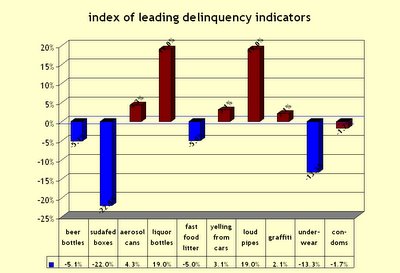 senate file 1752
senate file 1752, which would restore the vote to felony probationers in minnesota,
passed out of committee and will now be heard by the full senate. it has a long way to go, but the bill is alive for the moment. plus, i learned a good public criminology lesson.
people responded well to my testimony, i think, though the crime prevention and public safety committee seemed less sympathetic to this bill than did the elections committee. the crime folks appeared to frame it as aiding "criminals," whereas the elections folks framed it as aiding "voters" or "democracy." a couple highlights:
1. i sat in stunned silence when a senator asked whether the bill would restore voting rights to someone convicted of treason who is not sent to prison. as of now, exactly zero of the state's 40,107 felony probationers are serving treason sentences. to my knowledge, there has not been a treason case in minnesota for at least 50 years. moreover, i can't imagine, say,
zacharias moussaoui, being sentenced to straight probation rather than prison. i just stared blankly and let
senator hottinger and tom johnson (of
the council on crime and justice) field that one.
2. a senator more sympathetic to the bill was concerned about probationers convicted of sex crimes and other violent offenses. the most common offenses for minnesota felony probationers involve drugs and theft (see
pp. 32-33), but all major crime categories are represented. within any category, of course, probationers are convicted of
less serious offenses than those who are sent to prison. aside from special consideration of voting offenses and election fraud, i dislike the idea of linking voting rights to the
type of offense committed.
floor testimony comes only from the senators themselves rather than folks like me, so my senate testifying is over. right now, i'm trying to update my report on felon disenfranchisement in minnesota and the racial impact of the proposed change. if i can finish in time, i'll try to get someone to read it. i'm not sure what's up in the house at this point, but representative keith ellison will likely bring something forward. i promised i'd send him a book yesterday, so hopefully i'll have some updated minnesota numbers for him soon as well.
oh yeah, here's the public criminology lesson i learned yesterday: don't be smug, egghead.
i felt a little exasperated and know-it-allish when the topic turned to
treasonists on probation. as a professor, i often get to dictate the terms of the debate and "rule" on what constitutes a big problem or a little problem. while
magnitude counts for a lot in social science, it doesn't mean beans in law and politics (or in the culture?). i didn't know how to respond without lecturing or somehow talking down to the committee -- defining the extent and nature of probation, detailing the sorts of offenses for which minnesotans receive probation, distinguishing it from parole and prison, etc.
when discussion turned to sex offenders, i wanted desperately to remind the committee that we weren't talking about
releasing treasonists and sex offenders from prisons, we were talking about
voting. moreover, the bill would only let them vote after a judge decided they were safe to live in the community in the first place. i'm pretty sure that such "reminders" would have been counterproductive, so i'm glad i shut up. [aside: after hearing this discussion, i'm even more convinced by the findings in our
harris poll -- efforts to restore voting rights for current
prisoners will meet with much greater public and legislative resistance.]
in any case, i fought the urge to speak in a smug or dismissive or snarky way. otherwise, it would have undermined all of the social science information that i presented. i'll try to remember to respond earnestly to questions and to be well-prepared to speak outside of the narrow issue at hand. and, to wipe that smug little professorial smirk off my face...
 prison labor made an unlikely appearance in a times report on the immigration debates. u.s. representative dana rohrabacher* opposes any sort of guest worker program. mr. rohrabacher dismissed the arguments of president bush and business leaders about the nation's low-wage labor shortage:
prison labor made an unlikely appearance in a times report on the immigration debates. u.s. representative dana rohrabacher* opposes any sort of guest worker program. mr. rohrabacher dismissed the arguments of president bush and business leaders about the nation's low-wage labor shortage:











 rob sampson
rob sampson


 oxford
oxford crimprofs links to a
crimprofs links to a 
